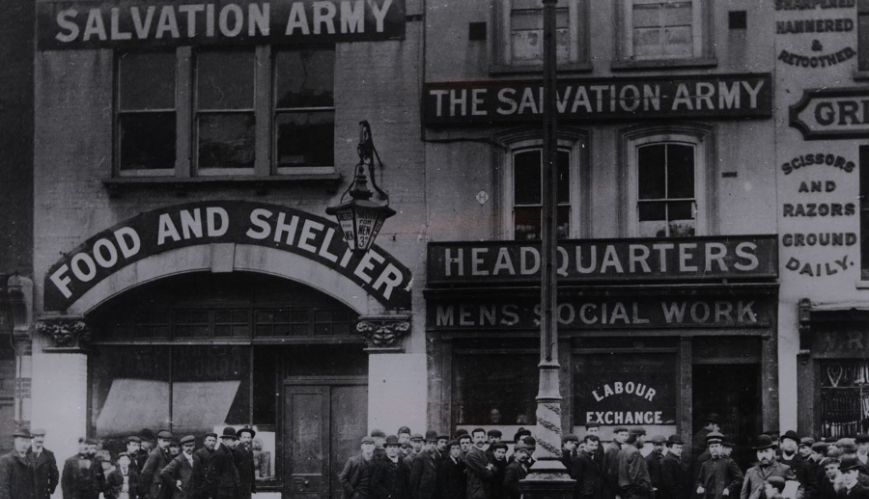Salvos ready to pioneer

Salvos ready to pioneer
2 May 2018
The Salvation Army has been marked by innovation since its beginnings. In 1890, it opened one of the first labour exchanges in Britain and the first in Australia.
When I look into the future, I see e Salvation Army in Australia courageously breaking new ground. Our vision is big and bold, and in order to see it fulfilled we will need creativity and outside-of-the-box thinking,” says Commissioner Floyd Tidd, National Commander of The Salvation Army in Australia. He sees innovation as part of The Salvation Army’s DNA.
“The Salvation Army has always been a movement with a pioneering spirit. Some of our most impactful work in Australia has occurred in an innovative space.”
The Salvation Army’s commitment to transforming Australia one life at a time has often resulted in the breaking of new ground. For instance, in 1890, during the Depression, the Salvos established Australia’s first employment bureau; in 2004, we set up Australia’s first centre to address problem gambling; and in 2005, we established a first-of-its- kind, award-winning law firm, using profits from business clients to fund free legal assistance for those who could not otherwise afford it.
At the commencement of The Salvation Army’s national transformation journey in Australia, “Increased Innovation” was articulated as one of six core objectives. Further emphasis has since been placed on the importance of innovation, with “We will pioneer” announced as one of the four strategic pillars in our National Strategy.
Reflecting on this particular strategic pillar, National Chief Secretary, Colonel Mark Campbell, says, “We want to improve our capacity to think differently and act strategically by building on our movement’s best and brightest people and ideas. And we want to form partnerships that help us do that. We are looking to embed innovation throughout the Army. We’ve seen that in order to keep transforming the lives of Australians, we need to keep transforming ourselves.”
Colonel Campbell adds that as we capitalise on the huge potential for innovation, we will “see even more lives transformed with the love of Jesus”.
Cabinet Secretary for Business Support, Lieutenant-Colonel Stuart Evans, agrees. “This national transformation journey provides a unique opportunity for us to innovate, and we are grabbing hold of that,” he says. “I see us deploying national systems and processes that will enable and support frontline mission in ways we have never done before.”
So how has the national transformation journey helped us see increased innovation so far?
According to Commissioner Tidd, “much of the work so far has been about preparing the soil, addressing the drivers and barriers to innovation within territories, divisions and departments: breaking down silos, connecting different parts
of The Salvation Army that were previously disconnected. It’s taken some time, but we’re doing the groundwork to help ensure that innovation will be our habit, our normal behaviour going forward.”
In addition to this groundwork, The Salvation Army in Australia has committed to implementing a “centrally coordinated, geographically dispersed” model within business and support services. We will locate people where they can best support frontline mission, utilising technology in our interactions so that we can accommodate a nationwide footprint.
“God has positioned The Salvation Army at the forefront of our nation as a key solution designer to assist in the solving of complex problems,” says Commissioner Tidd. “I am excited by what lies ahead of us. The Salvation Army will continue to pioneer and innovate to ensure all Australians can discover the full and abundant lives that Christ has come to bring.”
This is part 1 in a series on the ‘whys’ of the national transformation journey. Read about the national vision statement here.
Claire Hill is the Communications Coordinator for the Transition Support Team